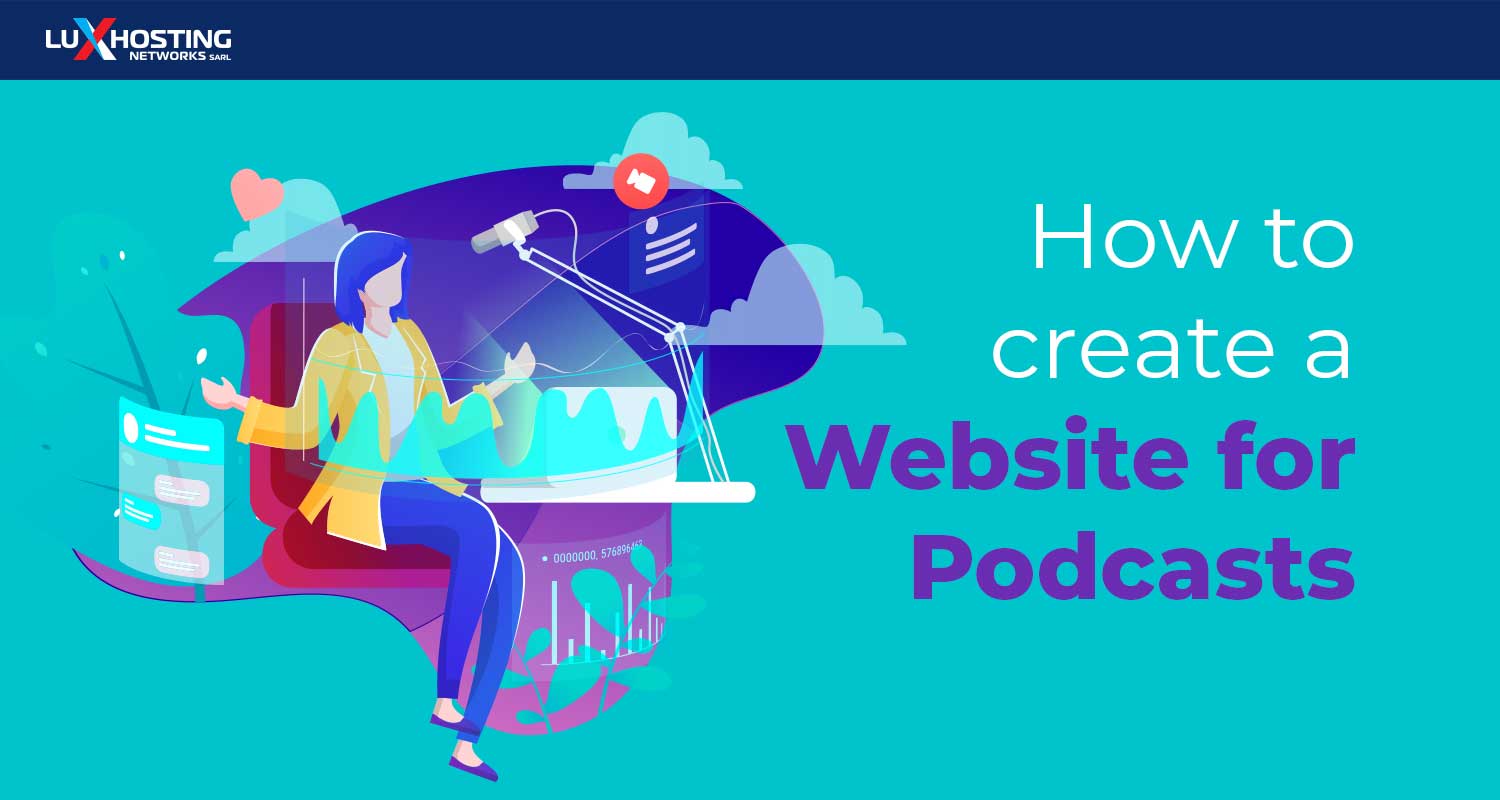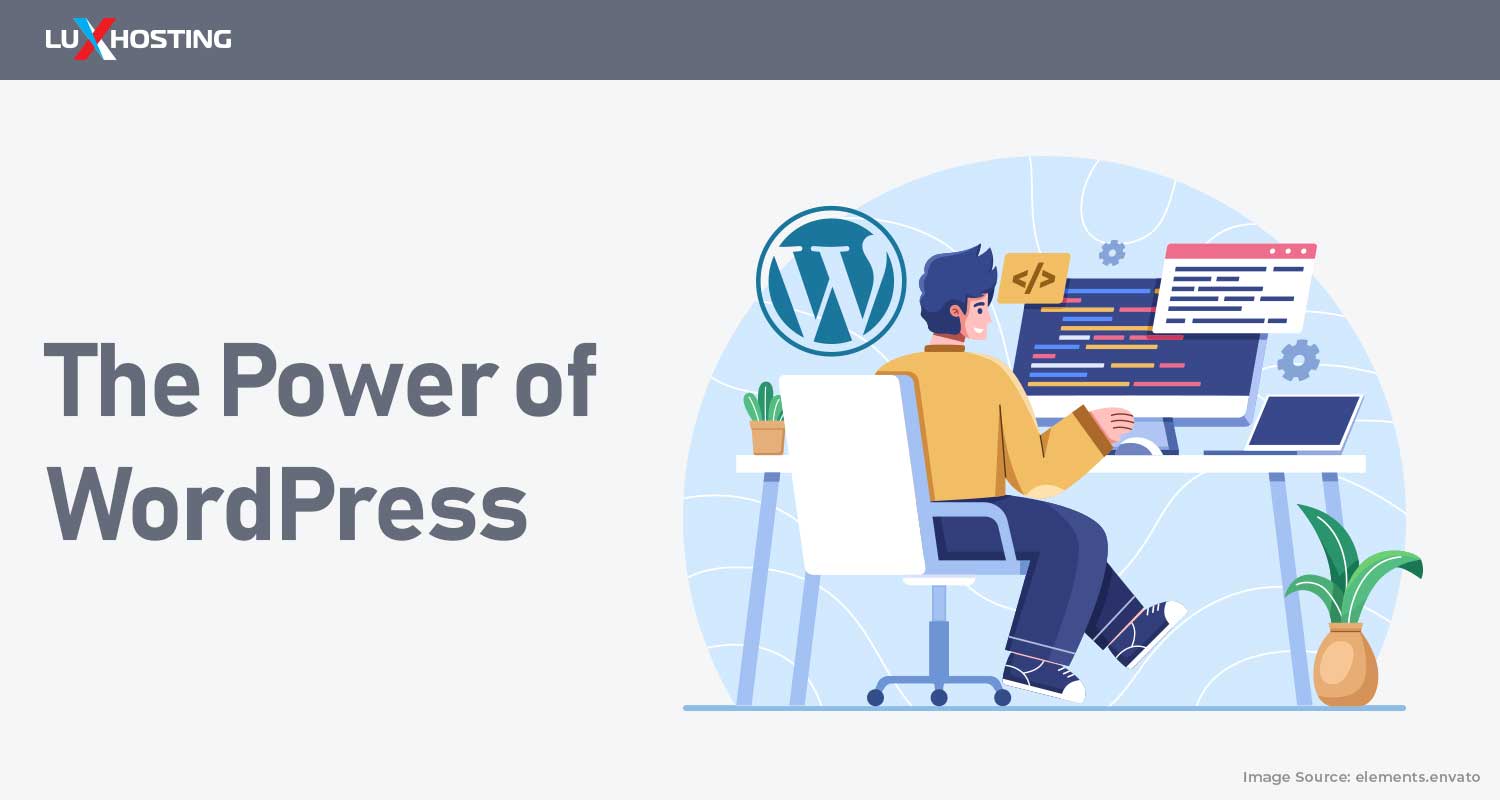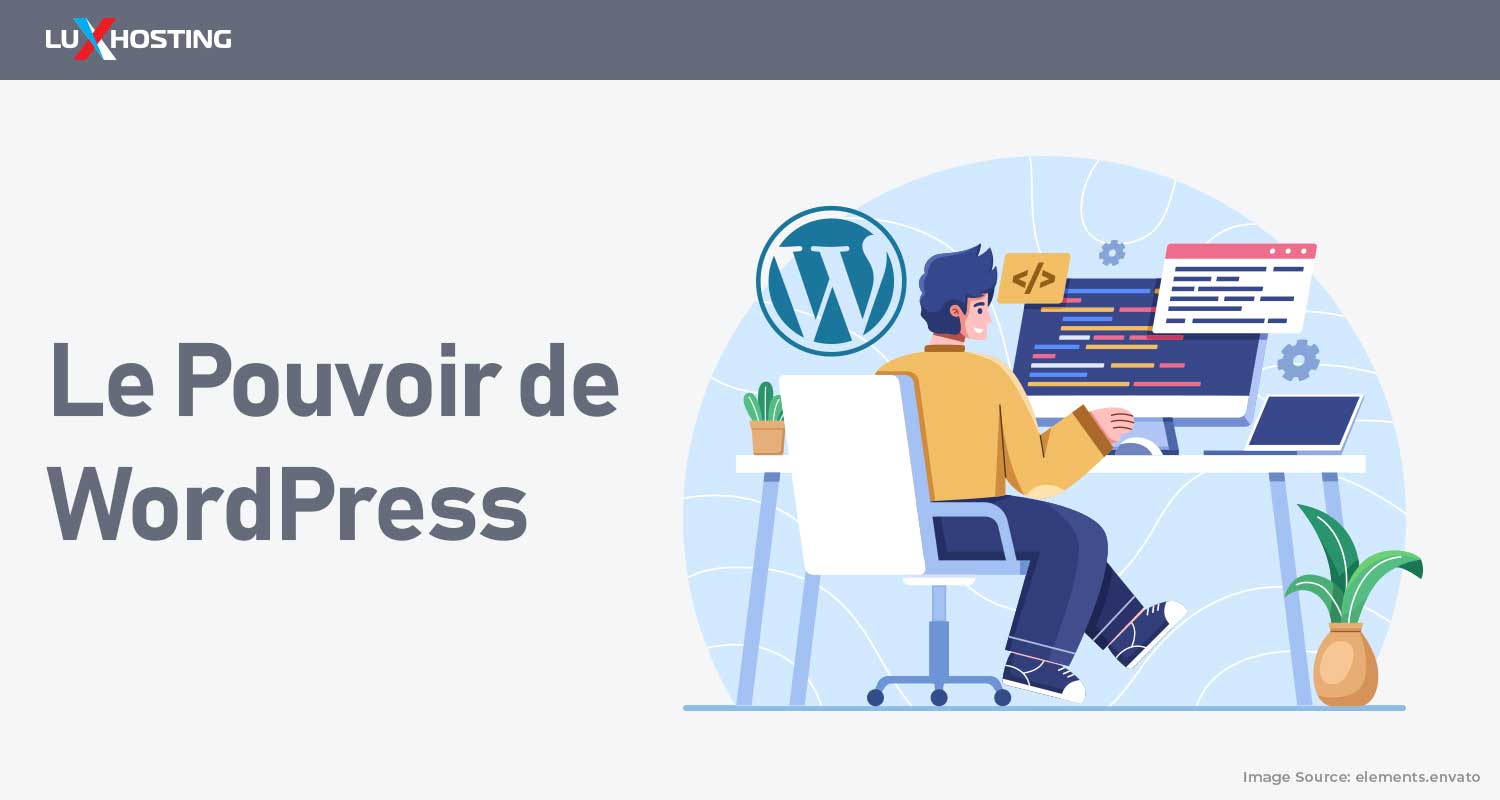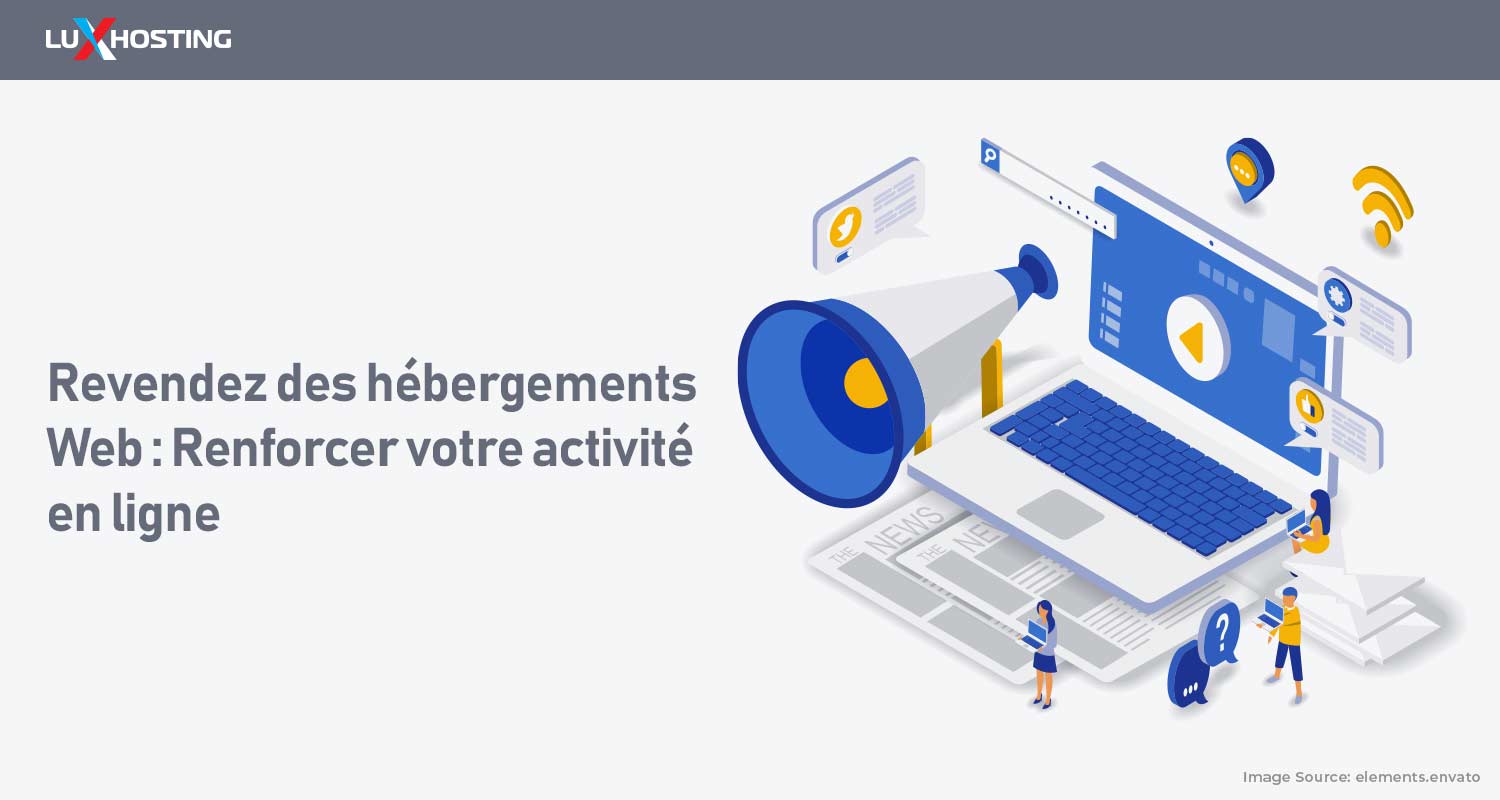Podcasts are a great way to provide value and attract new followers. Before 2012, or thereabouts, podcasts catered to a tiny niche audience, and businesses didn’t see the point of using this new medium to expand their reach. But thanks to a few wildly popular podcasters and the ease of creating websites using website builders, podcast websites are now mainstream. This makes them a great addition to your marketing toolbox. You can either add your podcast website to your existing marketing strategy, or you can make the podcast itself the product.
Steps to create your podcast website
Here’s how to create your own podcast website:
1. Set up web hosting
Before you can create your podcast website, you need to set up web hosting. (Our website builder already comes with hosting, so if you use our website builder, you can skip this step.)
What’s web hosting?
Every website on the internet is stored on a server, but servers are too expensive for most people to buy. So, most people just get web hosting. A web hosting company rents server space to you, so you have somewhere to store your website without having to pay for your own server.
Here’s what to look for in a web hosting company:
Secure web servers
Servers are a prime target for hackers, so it’s important to choose a web hosting company that carries out regular server maintenance and has secure server firewalls, as well as a good strategy for preventing DDoS attacks.
A range of webhosting options
A good web hosting company should have a range of hosting packages for you to choose from. If you’re just starting out and not sure how committed you are to having a podcast website, you’ll want shared hosting. It’s the cheapest kind of web hosting you can get, and it’s great for people who just want to dip their toes into podcasting. If you’re sure you want a podcast website, or if you want a bit more security for your server, you’ll want VPS hosting or dedicated hosting. Either way, choose a hosting company that gives you options. This way, you can scale your business later with as little hassle as possible.
24/7 customer support
When you make your podcast website, no matter how tech-savvy you are, you’re probably going to have a few questions. So, choose a hosting company that offers 24/7 customer support.
99.9% uptime
It would be horrible if, just as discussions were getting heated on your podcast, your website suddenly crashed. Choose a web host that offers 99% uptime, and this will be one less thing for you to have nightmares about.
SSL certificates
An SSL certificate encrypts data that passes between your server and your visitors’ browsers. When you install an SSL certificate, your visitors know they can trust your website. Having an SSL certificate even boosts your search engine ranking, thanks to Google’s algorithm. So, don’t choose a hosting company that offers packages that are incompatible with SSL certificates. Think you’ve found the hosting company of your dreams? Time for the next step!
2. Get a domain
You probably already know this, but your domain is the name of your website. You can usually get a domain for pretty cheap, but that doesn’t mean you should pounce on the first idea you get for your domain name. Why? If people can’t remember your domain name, they won’t be able to recommend your website to their friends. Why shoot yourself in the foot? Create a catchy, memorable domain name, by following these tips:
Make it easy to type
Choose a short domain name that doesn’t have a string of symbols or numbers. The easier it is to type your domain name, the more likely it is that people will choose your podcast website instead of someone else’s.
Make it easy to spell
Your domain should be easy to spell for several reasons. For one thing, if your website is hard to spell, people won’t remember it. But there’s another, more sinister reason to make your website easy to spell. If your website is frequently misspelled, you leave room for an ill-intentioned competitor to create a website using the misspelled version of your domain name. When this happens, the owner of that domain name can impersonate you and either steal your listeners or turn them against you.
Make it fun to say
Rhyming, alliteration, and ridiculous, over-the-top imagery make domain names fun to say. The more fun it is to say the name of your domain, the more people will want to say it. And the more people say it, the more listeners you get!
Add a keyword
A keyword is a word that people are likely to use when they’re searching for websites like yours. The most obvious keyword for you is “podcast”, but if you really think about your niche, you may be able to find other keywords that appeal to your audience.
For example, if your podcast deals with money management, a keyword you can use is “money”.
A domain name that contains a keyword ranks higher in search engines than domains without a keyword.
3. Choose a website builder
Now that you have web hosting and a good domain, you’ll want to choose a website builder, which is a tool that makes it easy to create professional-looking websites in minutes. Our website builder comes with hundreds of gorgeous templates for you to choose from, and it uses drag-and-drop technology, which makes it easy to customise your website until it looks exactly the way you want it to!
4. Create content
Now that you have your domain, hosting, and a gorgeous, professional-looking website, it’s time for the hard part: Creating your content. To do this, you’ll need to listen to podcasts both within and outside your niche. This way you know the topics already attracting your audience. Plus, you’ll be able to provide tips for enlivening the same frequently trodden topics your fellow podcasters are covering. Create a list of at least fifty topics before you record your first podcast. That way, you’re guaranteed to put out content consistently, and you’ll hold your audience’s attention (and feed that search engine algorithm). And that’s it! Follow these four steps, and you’ll have created your own podcast website. What you do with it is completely up to you.



